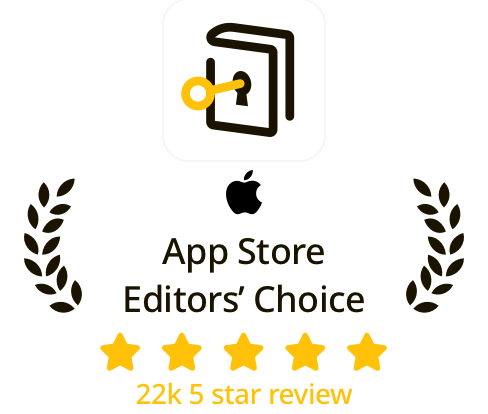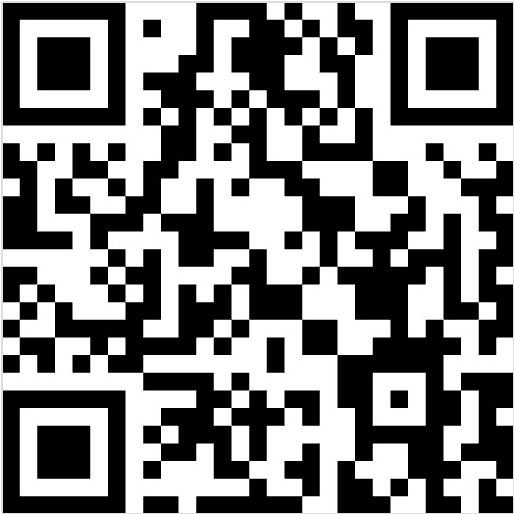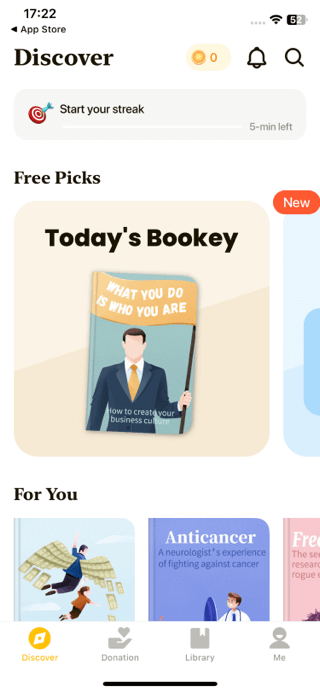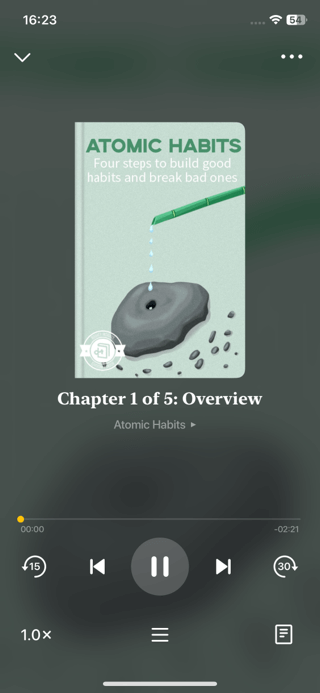Last updated on 2025/07/14
Rich Habits - The Daily Success Habits Of Wealthy Individuals Summary
Thomas C. Corley
Daily behaviors that lead to lasting wealth.
Last updated on 2025/07/14
Rich Habits - The Daily Success Habits Of Wealthy Individuals Summary
Thomas C. Corley
Daily behaviors that lead to lasting wealth.
Description
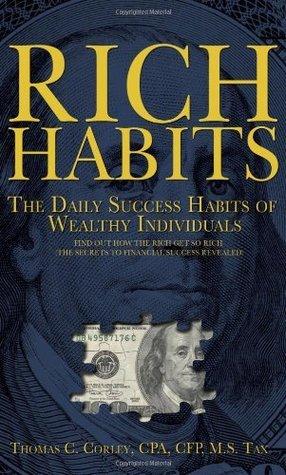
How many pages in Rich Habits - The Daily Success Habits Of Wealthy Individuals?
94 pages
What is the release date for Rich Habits - The Daily Success Habits Of Wealthy Individuals?
In "Rich Habits - The Daily Success Habits Of Wealthy Individuals," Thomas C. Corley unveils the transformative daily routines and mindsets that differentiate the wealthy from the rest of society. Drawing on years of detailed research and interviews with self-made millionaires, Corley offers readers a blueprint for success through practical and actionable habits that can be incorporated into everyday life. This insightful guide not only inspires a shift in perspective but equips you with tangible strategies to cultivate financial prosperity, unlock your potential, and achieve your dreams. Prepare to embark on a journey of self-discovery and empowerment, as you learn how adopting the habits of the affluent can lead to lasting change in your own life.
Author Thomas C. Corley
Thomas C. Corley is a renowned financial planner, author, and speaker who gained acclaim through his extensive research on the habits of wealthy individuals. With over five years dedicated to studying the daily routines and behaviors of millionaires, Corley has become a leading expert in the field of personal finance and success habits. His insights draw from a rich background in accounting and tax planning, combined with a passion for transforming lives by providing actionable strategies for financial success. Corley’s work not only aims to illuminate the paths taken by the wealthy but also empowers individuals from all walks of life to adopt the practices that can lead them to financial prosperity.
Rich Habits - The Daily Success Habits Of Wealthy Individuals Summary |Free PDF Download
Rich Habits - The Daily Success Habits Of Wealthy Individuals
Chapter 1 | The Insurance Salesman
In a dimly lit bar, Phoenix Upman finds himself lamenting his life's struggles to a bartender, unable to afford even community college for his son. His career as an insurance salesman offers him little financial stability, leaving him feeling like a failure. As he grapples with his despair, he is unexpectedly approached by Champ Dailey, a stranger who offers help after overhearing his troubles. Champ invites Phoenix to visit his office the following Monday, claiming he sees a reflection of his past self in Phoenix. On the day of the meeting, Phoenix arrives at a towering, opulent building, nervous yet curious about this encounter. Champ greets him warmly and shares his own story of struggle and redemption, crediting a mentor named J.C. Jobs with transforming his life through a set of principles he calls the "Rich Habits." Champ explains that he is there to guide Phoenix through these habits, which promise significant changes in life and success. As Champ reveals that the Rich Habits were integral to his success, he emphasizes that Phoenix's potential has been recognized and that he is meant to walk this path. However, instead of providing the principles directly, Champ informs Phoenix about a training program designed to teach these habits, ultimately guiding him to contact J.C. Jobs' office for further assistance. Champ assures Phoenix that there will be no cost involved, as he is sponsored by Champ. Uncertain but hopeful, Phoenix calls J.C. Jobs' office the next day, identifying himself as Champ’s sponsored candidate. A step into the unknown begins, but Phoenix's newfound connection to Champ ignites a spark of optimism for changing his life through the Rich Habits that promise to lead him towards greater success and fulfillment.
Key Point: The Importance of Mentorship in Transforming Lives
Critical Interpretation: You may find yourself in a similar place of despair, feeling stuck and overwhelmed by life's challenges. This chapter highlights the incredible power a mentor can have in transforming not just a career, but a whole life. Imagine being reached out to by someone who has walked the same difficult path, just like Champ did for Phoenix. It's a reminder that no matter how lost you feel, there are people out there willing to guide you and share their wisdom. Embracing the idea that mentorship can uplift you, you may find the courage to seek out those who have achieved what you aspire to be. This could be the pivotal moment that sparks a chain reaction of success and fulfillment in your life.
Chapter 2 | The Insurance SalesmanThe Secretary
John Andrews, the CEO of Sunblade, Inc., faced a significant challenge regarding his secretary, Dee Worthy. Adept in her role with a pleasant demeanor, Dee nonetheless struggled with poor attendance and a series of debilitating bad habits rooted in her tumultuous family life. Despite the potential John saw in her, he was increasingly frustrated by Dee's inability to break free from these negative patterns, which included tardiness and a propensity for distraction. Dee, only 24, battled not only a weight issue but also a profound lack of self-worth, often comparing herself unfavorably to family members. While her colleagues recognized her as diligent, they also noted her consistent absence and irresponsibility. John's attempts to guide Dee and make her aware of how her family dynamics impacted her performance were to no avail, as she was reluctant to change. In one tense meeting, Dee informed John that she had taken a second job and needed to leave early on Fridays, which presented additional complications for the team. Reluctantly, John agreed but laid out strict conditions: Dee would need to make up the hours and, if she failed to comply, her job would be at risk. Though she initially adhered to this arrangement, she soon slipped back into her old habits, leading to increasing resentment and a series of warnings from John. Ultimately, Dee's lack of responsibility resulted in her dismissal. Stripped of her job, she faced a grim reality, including the loss of her apartment and abandonment by her family. In her isolation, she found herself hesitant to seek help, even at a food kitchen. It was here that Jan Goode, a compassionate volunteer who recognized Dee's distress, approached her. Jan offered comfort and shared his own similar experiences of hardship and eventual redemption. He recounted how he was helped through a transformative training program that instilled ten principles, known as "Rich Habits," guiding individuals from failure to success. Jan encouraged Dee to contact the program’s sponsor, J.C. Jobs, leading her to a pivotal opportunity for change. The encounter with Jan marked a turning point for Dee, offering her a pathway from despair to hope. This situation underlined the significance of accountability, the impact of one’s environment on personal success, and the potential for transformation through mentorship and structured guidance.
Chapter 3 | The Car Dealer
Herb Riser, a seasoned car dealer, finds himself on the brink of financial despair. After notifying him that his dealership's floor plan financing may be revoked, the bank threatens to repossess his inventory, signaling potential bankruptcy. Overwhelmed by a sense of impending doom, Herb reflects on his situation during a troubled drive home. Memories flood back of his successful past, where he was the top salesman at previous dealerships, earning accolades and rewards for his impressive sales techniques. Yet, as he transitions into ownership of his own dealership, he struggles with responsibilities beyond sales. Despite his previous confidence in his sales abilities, Herb is confronted with cash flow issues that consume his time and energy. Instead of focusing on the showroom floor, he finds himself in bank offices, desperately seeking new lines of credit. His earlier success as a salesperson seems futile in his current predicament, as he grapples with the sobering reality that he lacks the necessary management skills to keep his business afloat. Arriving home to a warm and welcoming family, Herb's heart aches as he realizes the impending devastation he must communicate to them. He tries to maintain a façade but ultimately reveals the harsh reality to his wife. Their conversation spirals into fear and uncertainty about their family’s future, marked by the sounds of their children playing gleefully upstairs—a stark contrast to the turmoil brewing in the kitchen. The following day brings little solace; Herb’s emotional state becomes palpable to his employees, who sense that something is gravely wrong. In a moment of vulnerability, a potential customer enters the dealership, seeking to buy a car for her daughter. But instead of pitching his sales skills, Herb finds himself confiding in her about his business struggles. This unforeseen connection leads to a pivotal moment in Herb's life when the woman, Susan Changer, shares her own experience of overcoming bankruptcy and offers him a lifeline—a connection to training that might aid him in turning his situation around. Through this exchange, Herb is introduced to J.C. Jobs, whom he hopes might provide the necessary guidance to help him navigate through his dire circumstances. The encounter serves as a reminder of the unanticipated ways people can impact one another’s lives and highlights the importance of seeking help in times of crisis. Herb clings to the hope of a miracle, setting the stage for potential transformation as he begins to seek solutions beyond his former sales strategies. 1. The Weight of Responsibility: Herb's transition from top salesperson to dealership owner introduces overwhelming responsibilities, revealing his struggle with cash flow management and operational duties beyond sales. 2. The Impact of Family: The emotional turmoil of Herb's potential bankruptcy contrasts sharply with the innocence of his children's daily lives, emphasizing how personal failures can disrupt family dynamics. 3. The Power of Connection: A chance encounter with Susan leads Herb to see the importance of vulnerability and the potential solutions that others can offer, underscoring the significance of community and support systems during challenging times. 4. Hope for Redemption: Herb's introduction to J.C. Jobs symbolizes the potential for growth and learning, suggesting that setbacks can lead to new opportunities when one is willing to seek guidance and adapt.
Chapter 4 | The Accountant
In the narrative of a grieving accountant who lost his wife, Denise, to cancer, a profound transformation begins. After her passing, he navigates through despair and confusion, plagued by guilt over their financial struggles and her illness, ultimately leading to a vital wake-up call brought on by a dream. Denise’s words, “All you need to do is ask the right questions,” compel him to reflect on the disparity between his clients' financial success and his ongoing struggles. Motivated to uncover the secrets behind their success, he embarks on a five-year journey of analysis, resulting in the formulation of what he terms "Rich Habits"—principles centered around daily habits that differentiate the financially successful from the unsuccessful. 1. Adopting Good Daily Habits: The foundation of success lies in consistent good daily habits. Successful individuals maintain beneficial routines, while unsuccessful counterparts possess many bad habits. 2. Goal Setting: Successful people establish both daily and long-term goals, remaining focused on their aspirations and consistently assessing their progress. 3. Continuous Self-Improvement: Engaging in self-improvement is paramount. Successful individuals dedicate time daily to enhance their skills and knowledge, avoiding distractions that do not serve their goals. 4. Health Awareness: Prioritizing health through proper diet and exercise is crucial for productivity; successful individuals routinely incorporate health-conscious habits into their lifestyles. 5. Nurturing Relationships: Strong relationships are deemed essential by successful people, who invest time and effort into networking, fostering connections, and maintaining ties that yield mutual benefits. 6. Pursuing Moderation: A moderation-driven lifestyle is embraced by successful individuals, minimizing the extremes of behavior that may lead to chaos or stress. 7. Immediate Action: Procrastination is your enemy; adopting a “Do It Now” mindset fosters an environment of accomplishment and progress. 8. Positive Thinking: Maintaining an optimistic perspective and engaging in "Rich Thinking" cultivates a mindset that recognizes opportunities rather than focusing on obstacles or negativity. 9. Financial Responsibility: Putting aside ten percent of one's income for savings or investments embodies the principle of paying oneself first, leading to financial security in the long run. 10. Emotional Control: Mastering thoughts and emotions enables successful individuals to navigate challenges effectively, steering clear of emotional turbulence. Through these Rich Habits, the accountant transforms his life's trajectory, ultimately fostering a mindset and lifestyle conducive to personal and financial success. As he integrates these principles into his daily routine, he not only revitalizes his career but also sets a positive example for his children, demonstrating the profound impact of daily habits on achieving financial and personal fulfillment.
Key Point: Adopting Good Daily Habits
Critical Interpretation: Imagine waking up each morning with the knowledge that your success hinges on the small, daily practices you choose to embrace. This chapter reveals a transformative insight: just by adopting good daily habits, you can radically shift the trajectory of your life. Every time you commit to a positive routine—be it setting goals, dedicating time to learning, or prioritizing your health—the cumulative effect propels you closer to your aspirations. Much like the grieving accountant who, inspired by his late wife’s words, questions his current state and seeks the habits of the wealthy, you too can embark on a journey of self-discovery and growth. As you consciously incorporate these beneficial habits into your daily life, you not only enhance your financial standing, but you begin to embody the mindset of success, fostering a ripple effect of positivity that uplifts not only you, but also those around you.
Chapter 5 | Rich Habits at Work — The Client
In the narrative of transformation described, the client embarks on a significant journey involving the implementation of "Rich Habits," as introduced by his accountant, J.C. Jobs. The foundation of this journey lies in an intensive thirty-day commitment to recognizing and modifying detrimental behaviors into constructive ones. 1. The client begins by listing his bad habits, realizing the extent to which they were impacting his life. By systematically inverting these habits into beneficial counterparts, he actively engages in the process of self-improvement. This reflective exercise reveals the breadth of his prior behavior, such as excessive gambling, smoking, and neglecting important relationships. 2. As he adopts these new good habits, he immediately notices positive changes. Eliminating gambling not only improves his financial situation but also grants him more time and energy, leading to productive mornings. He transforms his professional life through enhanced punctuality and efficiency, which reduces workplace stress and allows him to cultivate a better home life, rekindling his relationship with his wife. 3. The next phase of his development involves setting personal and professional goals. Initially daunting, he embraces the "Do It Now" mindset integral to the Rich Habits philosophy. This shift instills confidence in him, making what once seemed unattainable—his annual goals—now feel achievable. His increased enthusiasm for work translates into rising sales and new opportunities, emphasizing the positive ramifications of this mindset. 4. Health becomes a focal point, as the client recognizes his poor eating and lifestyle choices. By integrating exercise into his daily routine and committing to healthier eating alongside his wife, they both embark on a journey to better health. Their evening walks not only aid in weight loss but also strengthen their bond, illustrating the interconnectedness of physical wellness and relationship quality. 5. After thirty days, the client's transformation culminates in a meeting with J.C. Jobs where he reflects on the profound changes he has experienced. His commitment to the Rich Habits has redefined his perspective on life and success. Feeling rejuvenated and optimistic about the future, he expresses gratitude to J.C., who encourages him to share these transformative principles with others in need, thus extending the cycle of support and empowerment. In conclusion, the client's journey from recognizing and discarding bad habits to adopting Rich Habits illustrates a fundamental process of personal and professional development. His metamorphosis is a testament to the power of disciplined practice and the positive ripple effects these changes can have, inspiring others to undertake similar paths toward success. The emotional undertones of J.C.'s commitment to helping others, fueled by personal loss, encapsulate the profound impact of sharing knowledge and lifting those who find themselves in dire circumstances.
Key Point: Transforming Habits for a Better Life
Critical Interpretation: Imagine standing at the crossroads of your life, where every decision seems influenced by past choices—habits that weigh you down and stifle your potential. Now, consider the empowering realization that you have the ability to transform your bad habits into life-enhancing practices. This transformative journey, much like the client’s in 'Rich Habits,' begins with a simple yet profound commitment to identifying and reversing detrimental behaviors. By embracing the 'Do It Now' mindset and actively replacing procrastination and negative tendencies with constructive actions, you can instigate immediate and lasting improvements in your life. With each small step, you not only enhance your productivity and relationships but begin to cultivate an exhilarating sense of purpose and clarity. This cascade of positive changes can rekindle connections, boost confidence, and lead to healthier living—ultimately inspiring you to share your journey of transformation with others. Imagine the ripple effect you could create by not just changing your life, but also encouraging those around you to follow suit and discover their own paths to success.
Chapter 6 | Rich Habits at Work — The Secretary
In a transformative journey, Dee found herself in a training program designed to instill Rich Habits, aimed at rehabilitating the lives of individuals previously marked by failure. As she took her seat in the large training room, she observed the diverse group of attendees, noting a common air of defeat rather than mere nervousness. However, this initial atmosphere shifted dramatically as the former financial disaster turned passionate instructor ignited a wave of camaraderie among the participants. Laughter and sharing overshadowed their past failures, creating a supportive environment that inspired Dee and the others to believe in the possibility of change. 1. The first critical habit involved Dee identifying and confronting approximately ten detrimental daily habits that had impeded her progress. With fervor, she reformed each of these bad habits into constructive ones, laying the groundwork for her transformation. 2. The fourth habit emphasized daily health care, which prompted Dee to reevaluate her relationship with food and exercise. Embracing moderation, she set a limit of 1,800 calories per day and committed to a consistent exercise routine that began with walking. Over just thirty days, Dee experienced a remarkable weight loss of twenty-five pounds, rekindling a sense of pride and vitality she hadn't felt since her youth. 3. The fifth habit focused on assessing and eliminating toxic relationships from her life. Dee recognized how her family’s manipulative behavior had distracted and drained her, contributing to her previous job loss. Resolving not to relive this cycle, she chose to distance herself from those relationships that were unreciprocated and burdensome, reaffirming her commitment to personal well-being. Empowered by these changes, Dee courageously reached out to her former boss, John Andrews. During a lunch meeting, she shared the positive impacts of the Rich Habits Training on her life, including her significant weight loss and newfound boundaries with her family. Impressed by her transformation, John offered Dee a second chance at her job. Despite initial objections from colleagues, particularly Nina, Dee's determination and the skills she acquired reaffirmed her worth, eventually leading to a blossoming friendship with Nina. Their collaborative efforts propelled Dee into a leadership role as she took on more operational responsibilities. Years later, when Nina became CEO, Dee initiated Rich Habits training sessions for all employees, creating a culture of growth and empowerment within the company. Ultimately, Dee’s journey of self-improvement extended beyond her professional life, cementing her control over her health and weight. By the age of forty-four, she had transformed into a lean, healthy individual who proudly runs a half-marathon in Philadelphia each year, celebrating her resilience and the lasting impact of Rich Habits on her life. This annual event now marks her commitment to maintaining her newfound lifestyle and serves as a testament to her incredible journey of transformation and empowerment.
Key Point: Identify and confront detrimental daily habits.
Critical Interpretation: Imagine waking up each day with a profound sense of potential, knowing that the key to unlocking a better version of yourself lies in your daily habits. Just like Dee, you have the power to take stock of your life and recognize the negative routines that hold you back. Picture yourself diligently identifying those habits that drain your energy and spirit, and with each small victory, transforming them into constructive practices that propel you forward. By committing to this process, you create a positive ripple effect in your life, empowering yourself to not just overcome obstacles, but to thrive. The journey may be challenging, yet the exhilaration of personal growth can inspire you to become the architect of your own success story, reinforcing the belief that change is possible and worth pursuing.
Chapter 7 | Rich Habits at Work — The Car Dealer
Herb was a standout student in the Rich Habits training class, yet he faced significant financial challenges due to a critical shortfall in his approach to customer relationships. Despite his effective selling skills, he viewed customers merely as one-time transactions, lacking the commitment to foster long-term relationships—a violation of Rich Habit Number Five: the daily devotion to forming lasting connections. This mentality negatively impacted his car dealership, creating a toxic culture that deterred repeat business. Customers preferred to avoid his dealership, leading to a constant struggle for new clients, while the dealership's service department suffered as former customers rarely returned. Realizing the need for a profound shift, Herb took decisive action to transform his dealership's culture. He initiated this change by prominently displaying a sign that read “Under New Management,” signaling to both customers and staff that a new era had begun. Furthermore, he reached out to his former boss, seeking guidance on effective customer relationship management. Their meetings, held twice weekly, provided Herb with invaluable insights and introduced him to key banking relationships, allowing him to refinance his debt and secure vital financing for his operations. As Herb implemented these strategies, the positive effects of his newfound customer-centric approach became evident. Gradually, he began treating his customers with the respect and care they deserved, leading to an increase in customer loyalty. This shift in attitude allowed him to fulfill his financial obligations to his banks, and ultimately, Herb achieved self-sufficiency in financing his inventory without needing external assistance. Over time, Herb's success skyrocketed. He expanded his business, acquiring additional dealerships, and became one of the most prominent automobile dealers in New England. Additionally, he took on a new role, becoming a leading instructor at the J.C. Job’s Rich Habits Foundation. This non-profit organization provides free training to those unable to afford it, further amplifying Herb's impact. He finds immense pride in having trained nearly ten thousand individuals in Rich Habits, celebrating his transformation from a struggling car dealer to a thriving mentor in financial success. Herb’s journey underscores the power of relationships in business—a transformation that marked not only his professional success but also enriched his life and those around him.
Chapter 8 | Rich Habits at Work — The Insurance Salesman
In "Rich Habits - The Daily Success Habits of Wealthy Individuals," Chapter 8 narrates the transformative journey of Phoenix, an insurance salesman who applies the principles of Rich Habits to achieve success in both his professional and personal life. 1. Commitment to Self-Improvement: Phoenix embarks on his path of self-improvement by closely examining Rich Habit Number Three, which emphasizes the importance of daily personal development. Initially, he struggled with this concept, feeling a deep-rooted disdain for his job and its requirements. However, he recognized the need for change and committed to reading industry-specific material for thirty minutes each day. This commitment challenged him at first, but over time, he found enjoyment and ease in the process, eventually increasing his reading time and expanding his focus to product knowledge. This newfound dedication led to an increase in solid leads and appointments—key indicators of his growing success. 2. Focusing on Health: Rich Habit Number Four encourages individuals to prioritize their health. After his reading sessions, Phoenix began jogging, initially struggling due to his weight of nearly forty pounds over. His determination paid off—within weeks, he was able to jog longer distances and began shedding weight. As his physical health improved, so did his motivation. He consequently moderated his diet and quit smoking, reinforcing the link between good health and enhanced productivity. 3. Proactive Sales Strategies: Embracing the discomfort of cold calling, which he previously avoided, became a significant part of his daily routine. Even though he loathed the task, he incorporated it into his to-do list and saw results. Remarkably, one cold call resulted in a substantial referral that became one of his largest life insurance cases, further motivating him to establish a disciplined routine of nightly calls. In abandoning his old habits—like frequenting the local pub—he seamlessly integrated rewards, enjoying a celebratory beer at home after completing his calls, reinforcing positive behavior change. 4. Acknowledgment and Success: Phoenix's dedication did not go unnoticed. After a month of hard work and consistent results, his supervisor called him in to commend his impressive performance. The supervisor revealed that not only had Phoenix significantly boosted his production numbers, but he also earned a monetary bonus—his first ever—due to his renewal of commitment to the Rich Habits. Overwhelmed with joy, Phoenix realized that this achievement was a mere reflection of the hard work he had put in since adopting the Rich Habits. 5. Community Impact and Continued Growth: As his success became a recurring event—promotions leading to increased bonus checks—Phoenix not only excelled individually but also sought to share his knowledge with colleagues by conducting Rich Habits training for new hires. This initiative led to a remarkable increase in company profits, demonstrating how personal success can ripple through an organization. Eventually, Phoenix was able to secure his son’s education and climb the corporate ladder, all while maintaining a focus on his health and well-being. Phoenix's journey illustrates the profound impact of establishing productive daily habits. By actively engaging in self-improvement, prioritizing health, tackling uncomfortable tasks, celebrating successes, and sharing knowledge with others, he transformed his life from mediocrity to excellence, ultimately achieving personal and professional success.
